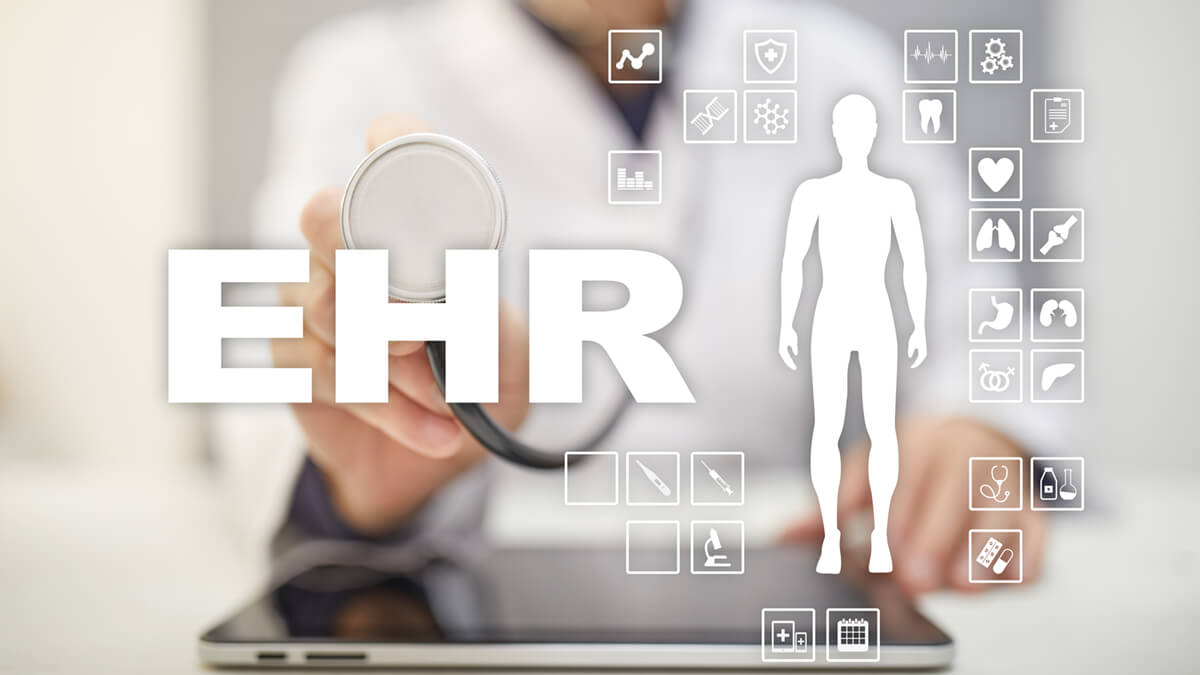Over 95% of U.S. hospitals use a certified Electronic Health Records (EHR) system.1 No doubt, in your nursing career, you’ve encountered an EHR or already use one daily. They’re the backbone of modern medicine, and they’re changing the way healthcare is managed and delivered.
In the coming years, EHRs will only grow more sophisticated and more important. But getting the most out of them will require both medical and IT expertise. Which is why hospitals, insurers, providers, and policymakers are turning to healthcare informatic specialists—a new healthcare role that’s uniquely suited for nurses.
What Is Health Informatics?
Health informatics sits at the intersection of healthcare and technology, encompassing both the design of EHRs and the analysis of EHR data with the intent to improve health outcomes, lower costs, and streamline day-to-day operations.
What Role Do Nursing Informatics Specialists Play?
Nursing informatics specialists—also known as nurse informaticists—bring medical knowledge into the IT realm. It’s a type of nurse skilled in both the delivery of healthcare and the development and utilization of healthcare technology. Nurses, with their medical training and hands-on patient experience, are uniquely suited to work with IT professionals to ensure EHRs and other healthcare technology work well in the real world.
With the increasing amount of healthcare technology and the increasing complexity of EHRs, nursing informatics specialists can play a number of important roles, including:
- Managing the transition from paper to digital records.
- Developing information systems based on current evidence-based standards of care and ensuring systems remain updated.
- Developing EHR interfaces that are conducive to good care while remaining efficient to use.
- Analyzing EHR data to identify areas where care can be improved and/or costs better managed.
- Working with policymakers and government agencies to ensure laws and regulations support healthcare technology and are compatible with provider and patient technology needs.
- Developing and/or implementing healthcare technologies outside of EHRs, including patient health monitoring systems, quality tracking initiative, and home care management systems.
What’s the Career Outlook for Nursing Informatics Specialists?
The Bureau of Labor Statistics (BLS) estimates that the field of medical records and health information technicians will grow by 13% between 2016 and 2026, a rate that is faster than average.2 Most nurse informaticists, however, are at a level above technicians and better described as health information managers, a category that BLS includes under medical and health services managers. This managerial category is expected to grow even faster than the technician category, with employment in the field increasing 20% between 2016 and 2026.3
In addition to being a part of fields experiencing rapid employment growth, nursing informatics specialists also enjoy excellent salaries. Over half of those with a certification in nursing informatics average over $100,000 a year.4
How Can You Become a Nursing Informatics Specialist?
The best way to take your career in nursing into health informatics is to earn a Master of Science in Nursing (MSN) with a specialization in Nursing Informatics. Offered by several of the top nursing schools, nurse informatics MSN programs can help you gain the skills you’ll need to integrate data, information, and knowledge to support patients, nurses, and other caregivers in their decision-making in all roles and settings.
Just as health informatics utilizes modern technology, many master’s in nursing programs now utilize technology too, offering online learning formats that make earning your master’s degree in nursing more feasible than ever before. Instead of requiring you to take classes on a campus, online MSN programs allow you to complete courses from anywhere you have internet access. Plus, when you earn a master’s in nursing online, you’ll have the freedom to choose when in the day you attend class, making it possible for you to continue working full time while enrolled.
If you hold a Bachelor of Science in Nursing, you’re already qualified to enroll in most MSN programs online, such as the MSN nursing program offered by Walden University. Walden also offers an RN to MSN path for nurses who have not earned a BSN or hold a bachelor’s degree in subjects outside of nursing. This level of convenience is just one more reason Walden produces more nurses with advanced degrees than any other university.5
Nursing informatics is an increasingly important healthcare career. With a master’s of science in nursing from an online nursing school, you can make it your career.
Walden University is an accredited institution offering a Master of Science in Nursing with a specialization in Nursing Informatics degree program online. Expand your career options and earn your degree in a convenient, flexible format that fits your busy life.
1Source: https://dashboard.healthit.gov/quickstats/pages/FIG-Hospital-EHR-Adoption.php
2Source: www.bls.gov/ooh/healthcare/medical-records-and-health-information-technicians.htm
3Source: www.bls.gov/ooh/management/medical-and-health-services-managers.htm
4Source: www.himss.org/sites/himssorg/files/2017-nursing-informatics-workforce-salary-guide.pdf
5Source: National Center for Education Statistics (NCES) IPEDS database. Retrieved July 2017, using CIP codes 51.3801 (Registered Nursing/Registered Nurse); 51.3808 (Nursing Science); 51.3818 (Nursing Practice). Includes 2016 preliminary data.
Walden University is accredited by The Higher Learning Commission, www.hlcommission.org.




